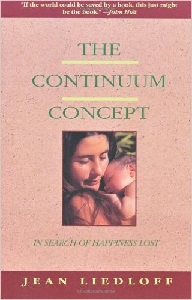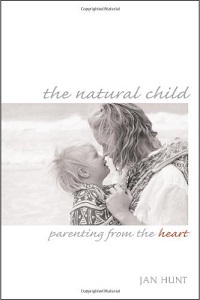
|
|||||
|---|---|---|---|---|---|

|
|||||
 |
Imagine for a moment that you have been abducted by space ship to a distant planet and you are surrounded by giant strangers whose language you do not speak. Two of those strangers take you under their care. You are entirely dependent on them for the satisfaction of all your needs - hunger, thirst, comfort, and reassurance that you are safe in this strange place. Then imagine that something is very wrong - you are in pain, or terribly thirsty, or in need of emotional support. But your two helpers ignore your cries of distress and you are unable to get them to attend to you and understand your needs. Now you have a more serious problem, more serious than the first; you feel completely helpless and alone in an alien world.
In all innocence a baby assumes that we, as his parents, are correct - that whatever we do is what we ought to be doing. If we do nothing, the baby can only conclude that he is unloved because he is unlovable. It is not within his capabilities to conclude that we are only busy, distracted, worried, misled by our society, or simply inexperienced as parents. No matter how deeply in our heart we love our baby, it is mostly the outward manifestations of that love that the baby can understand.
No one likes to have his communication ignored and if it is, this brings on feelings of helplessness and anger which inevitably damage the relationship. Such a response seems to be one which is universally experienced by adults and there is no reason to conclude that it is any different for babies and children. Few would ignore an adult while he repeatedly said, Can you help me? I'm not feeling right.
Ignoring such a request would be considered most unkind. But a baby cannot make such a statement; he can only cry and cry until someone responds or he gives up in despair.

The Continuum Concept: In Search Of Happiness Lost (Classics in Human Development) |
Immediately responding to a baby's cry went unquestioned for thousands of years until recent times. In our culture, we assume that crying is normal and unavoidable for babies, but crying seldom occurs in natural societies where babies are carried close to the care-giver much of the day and night for about the first six months. In contrast to what many in our society would expect, babies cared for in this way show self-sufficiency sooner than do babies not receiving such care.
In fact, research on early childhood experiences consistently shows that children who have enjoyed the most loving care in infancy become the most secure and loving adults, while those babies who have been forced into submissive behaviour build up feelings of resentment and anger which may be expressed in many harmful ways.
In spite of this research, most arguments for ignoring crying are based on fears of spoiling
the baby. One baby-care brochure I found recently in a local pediatricians office, advised the parent to let the baby handle it for a while.
Though prolonged crying can be frustrating for the parents, a baby is simply too young and inexperienced to handle
the cause of the crying, whatever it may be. He cannot feed himself, change himself, or comfort himself in the way that nature intended. Clearly, it is the parents' responsibility to meet their baby's needs for nurturance, security, and love, not the baby's responsibility to meet his parents' need for peace and quiet.
The pamphlet implies that if the parents give their baby an opportunity to become self-reliant, they are helping him to mature. But an infant is simply not capable of such maturity. True maturity reflects a strong foundation of the emotional security that can come about from those closest to him during the earliest years.

The Natural Child: Parenting from the Heart |
An immature person can only respond to stress in an immature way and a baby denied his birthright of comforting from his parent may respond by turning to ineffective self-stimulation (head-banging, rhythmic rocking, thumb-sucking, etc.) and emotional withdrawal from others. If his needs are routinely ignored, he may decide that loneliness and despair are preferable to risking further disappointment and rejection. Unfortunately this decision, once made, can become a permanent outlook on life, leading to an emotionally impoverished adulthood.
Many child-care professionals feel that parental encouragement of self-satisfiers and over-substitution of material objects - teddy bears substituting for parents, strollers for arms, cribs for shared sleep, pacifiers for nursing, toys for parents' attention, music boxes for voices, formula for breast-milk, wind-up swings for laps - have led to an age of materialistic acquisition, personal loneliness and lack of emotional fulfilment.
Ignoring a baby's crying is like using earplugs to stop the distressing noise of a smoke detector. The sound of a smoke detector is meant to disturb us and get us to respond to a serious matter and so is the cry of a baby. As Jean Liedloff wrote in The Continuum Concept
- a baby's cry is precisely as serious as it sounds.
Stressful though it may be, infant crying should be seen not as a power struggle between parent and child, but as a gift of nature to ensure that babies receive the care they need.
Jan Hunt, M.Sc (Counselling) is the editorial assistant of Empathic Parenting and the author of The Natural Child: Parenting from the Heart. She can be reached at janhunt@naturalchild.com. Check out her Natural Child Project site at NaturalChild.
The Natural Child Project has articles on natural parenting, homeschooling, and child advocacy; a parenting advice column, a monthly guest column, a short book on mother-child bonding, and a children's art work page.
This article compliments of Born to Love.
Send questions, comments, and suggestions to: catherine@borntolove.com
Born to Love articles are written by Catherine McDiarmid-Watt
Born to Love is a participant in the Amazon Services LLC Associates Program, an affiliate advertising program designed to provide a means for sites to earn advertising fees.
NOTE: All logos, company names, brands, images, trademarks and other intellectual property are the property of their respective owners.
Born to Love is a participant in the eBay Partner Network, an affiliate advertising program designed to provide a means for sites to earn advertising fees by advertising and linking to eBay.com.
Copyright © 1978 - BorntoLove.com - All Rights Reserved.
Last updated - April 5, 2024